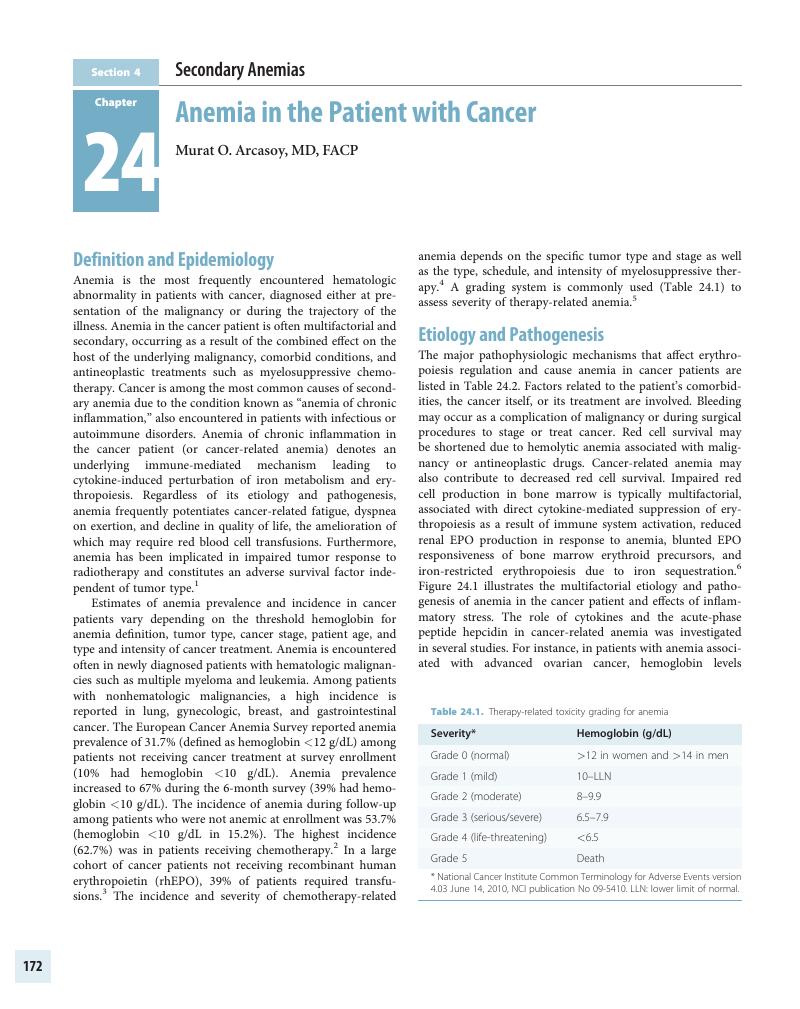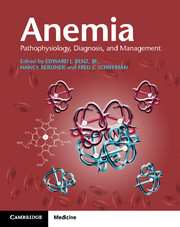Book contents
- Anemia
- Anemia
- Copyright page
- Contents
- Contributors
- Preface
- Section 1 The Normal Human Red Blood Cell
- Section 2 The Patient with Anemia
- Section 3 Specific Forms of Anemia
- Section 4 Secondary Anemias
- Chapter 23 HIV and Anemia
- Chapter 24 Anemia in the Patient with Cancer
- Chapter 25 Secondary Anemias Associated with Hematopoietic Stem Cell Transplantation
- Chapter 26 The Anemia of Aging
- Chapter 27 Anemia in Pregnancy
- Chapter 28 Anemias Due to Systemic Diseases
- Chapter 29 Transfusion Therapy for Anemia
- Chapter 30 Transfusion Reactions
- Section 5 Management of Anemia
- Section 6 Summary
- Index
- References
Chapter 24 - Anemia in the Patient with Cancer
from Section 4 - Secondary Anemias
Published online by Cambridge University Press: 18 April 2018
- Anemia
- Anemia
- Copyright page
- Contents
- Contributors
- Preface
- Section 1 The Normal Human Red Blood Cell
- Section 2 The Patient with Anemia
- Section 3 Specific Forms of Anemia
- Section 4 Secondary Anemias
- Chapter 23 HIV and Anemia
- Chapter 24 Anemia in the Patient with Cancer
- Chapter 25 Secondary Anemias Associated with Hematopoietic Stem Cell Transplantation
- Chapter 26 The Anemia of Aging
- Chapter 27 Anemia in Pregnancy
- Chapter 28 Anemias Due to Systemic Diseases
- Chapter 29 Transfusion Therapy for Anemia
- Chapter 30 Transfusion Reactions
- Section 5 Management of Anemia
- Section 6 Summary
- Index
- References
Summary

- Type
- Chapter
- Information
- AnemiaPathophysiology, Diagnosis, and Management, pp. 172 - 178Publisher: Cambridge University PressPrint publication year: 2017
References
- 1
- Cited by

